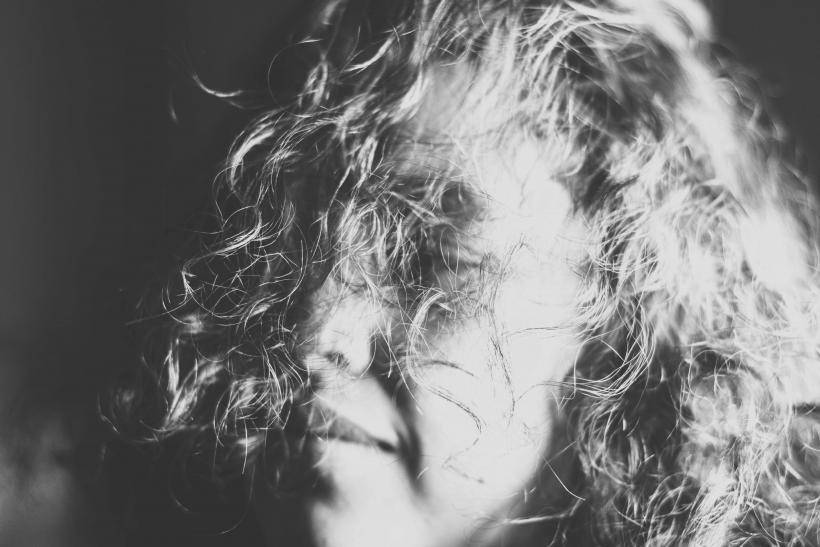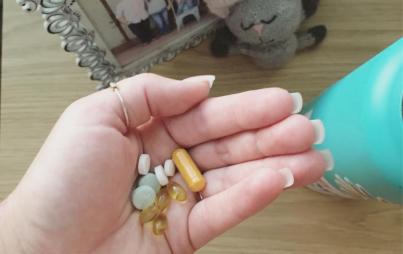
Photo by Hermes Rivera on Unsplash
When I was a freshman in college, during a bout of severe depression I wrote in my journal, “In all reality, it's no big deal, what is a big deal is my crazy reaction and emotional response. I mean, GROW UP KRISTANCE!! Cry a river, build a bridge, and get over it. Right? On the other hand, it bothers me — but it's STUPID to bother me. I think I'm choosing for it to bother me…”
I blamed myself for feeling sad. I spent hours upon hours in the library doing nothing but convinced that I could will myself to study or to finish that paper.
No matter how much I denied it, it was obvious that I was depressed.
I hated it. I hated me. My loneliness didn’t seem fair. I was sitting in a beautiful library, at an incredible college, surrounded by life, academia, and success.
Mental health is complicated. While stressful situations can exaggerate or even bring on mental illness, life circumstances do not determine whether or not someone will have a mental health issue like depression. Depression is one of the leading causes of disability in the world, at any given time an estimated 300 million people are living with depression.
When depression is at the helm, inspiration seems to evaporate. It can feel like being in a dark cave from which there is no escape. I can hear people outside the cave yelling at me to emerge from my den. A desire to leave the cave does arise from time to time, but finding the exit is too arduous a task.
I know it can be confusing when someone you care about is improving and then suddenly appear to be in the depths of depression again.
They can be going to therapy, taking the right medication, and doing all the "right" things and then wake up one day and struggle to get out of bed. It is not easy to watch a loved one go through it. I don't blame them for not knowing what to say. I don’t blame them for always asking the same question, “Why are you depressed?”
No matter how good I start to feel, the melancholy of my depression always comes back. Without rhyme or reason, it returns to me. The self-loathing and the feeling of not wanting to be in my body. It always comes back. Guilt for feeling happy, that comes back. I begin to again feel embarrassed and ashamed of myself and my words and my actions. My motivation is drained from my body and. The tools I've learned in therapy and twelve-step programs become inaccessible. The only thing I can do is stare, and if I'm lucky or not too far gone, I can write about it. I also ask, “Why am I depressed?”
You Might Also Like: How Books And Media Helped Me Through A Depressive Episode
Extrapolating the exact cause of depression is like trying to travel to the other side of the world by digging through the center of the Earth. You'll die from the pressure before you get halfway there. "Why are you depressed?" is a fine question for a neurotypical person, because feeling depressed is different than being depressed.
I'm not here to discredit your experience or invalidate anyone's feelings.
What I'm here to say is that "feeling depressed" is a different beast than “having depression.”
It's not a battle in semantics, and I feel for anyone who is down and out. Your mental health is as important as anyone else’s. That being said, a feeling of deep, tiring sorrow or hopelessness is what many people think they’re saying when they say, “Ugh, that makes me depressed.” But that is just one possible symptom someone with depression may experience. Depression is a diagnosable medical condition and a disorder in the DSM-V. It affects many more aspects of life than just emotional. Some symptoms can severely impact the quality of life for people with it. For me, fatigue is a debilitating part of my life. It's constant and powerful.
When depression shows up, I lose my serenity. I become indecisive, sensitive, sad, unmotivated, and exhausted. I don't have the desire to do anything. I suddenly distrust myself and am filled with fear. Depression isn’t about “feeling sad.” It is persistent, energy draining, and can be nearly impossible to explain.
It can ease up, it can be seemingly gone, sometimes, but no matter the external circumstances, my depression does not vanish. For a long time, every single day was a struggle. But lately, there are more good days than bad — a lot more good days than bad ones. I was always depressed and have had depression throughout my life. For years I didn’t want to accept that, so I tried to ignore it. I tried to suppress it.
Recognizing and accepting it as part of me seems counterintuitive to some people. I’ve been told that I shouldn’t accept this as my reality because it invites depression to return. Depression doesn’t come around because I think it might, it just comes around. The rest of my life I might need to be self-aware to manage my mental health, that’s true for today at least. And that is okay. I accept that I may always need therapy.
I approach my depression without a need to end it; it’s just part of my journey.
Knowing that there is no band-aid fix is a relief. I’m not doing anything wrong, it’s just not always easy and that is okay.
Sometimes there is no answer to the question “why?”







